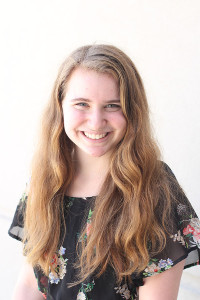“Words that mean more, and sound better,” is how two-time Poet Laureate of the United States Billy Collins described poetry.
The author made an appearance for the Winter Park Institute after he held a poetry contest open to high schoolers from the surrounding areas. The event—ironically, held on Shakespeare’s birthday—included participation from various high school students.
Trinity Preparatory School’s own students took place in this event. Senior Elena Klein was chosen to spoke on a panel about poetry, and junior Richelle Burke’s poem was the second-place winner in the contest. Collins first spoke about his experiences as a poet. Collins is known for his Poet Laureate title. It is a position given to one person a year who serves as the nation’s official poet.
Collins started writing poetry in high school. He was inspired by his mother, who would recite poetry when he was young, and by the girl who broke his heart in tenth grade. At that age, the only poetry he read was by “dead men, with beards and three names.” He started out by imitating these poets. The violent and controversial works he wrote were published in his Christian school’s newspaper, but his pieces upset so many people that it destroyed the school newspaper.
When he received the accolade of Poet Laureate, he knew he wanted to help high school curriculums, because he believed that writing wasn’t honored. He points out that the arts in general tend to be put on the back burner as children get older, mainly because young adults are self-conscious.
Collins is known for his book Poetry 180, which has 180 poems and is designed so high school students can read one poem a day during the school year. He wants the students to see that reading poetry is enjoyable, instead of the burden that many kids find it to be.
Instead of responding to this poetry through essays or analyses, students integrate these poems into their daily lives, and are exposed to the basics of poetry—sound, rhythm, meter, and the like.
Much of his poetry is about everyday topics such as school, which helps the young reader connect with the works. Collins’s conversational style comes from how he, as a reader, enjoys feeling like he’s being talked to.
He says his experience as a poet has happened not with one great realization, but gradually over time.
Collins also talked about the nature of poetry. He said, although poetry is sometimes gloomy, the form, syntax, and underlying themes give pleasure to the reader. Collins is currently reading the poetry of Stephen Dunn and Charles Simic.
His main tip to budding writers is to carry a notebook at all times to keep track of daily occurrences, which could be inspiration later.
After Collins talked about his personal experience, he invited the chosen students to go up on the stage as a panel. They answered many questions about their experiences as poets. When asked what inspired them, one boy answered that he had listened to hip-hop and wanted to be a rapper, but “rappers don’t wear ties.”
Klein said that it all started in first grade, when she was had to write a paper with the given topic of “What would you do if you were a dinosaur?”
After talking about when and in what conditions they write, the competitors went back on stage so they could have a chance to recite their poems.
Three students recited their original poems. Their poems were picked as the top three winners out of over ninety entries. Collins chose the winners and was enthusiastic about seeing these young people so interested in writing.
Junior Richelle Burke’s enchanting poem placed first runner-up in the contest. Burke, representing the next generation of authors, gives advice to those who need inspiration for their writing. She says, “Don’t try to force your writing. Let inspiration come to you when it does. When it’s meant to happen, it’ll happen.”



